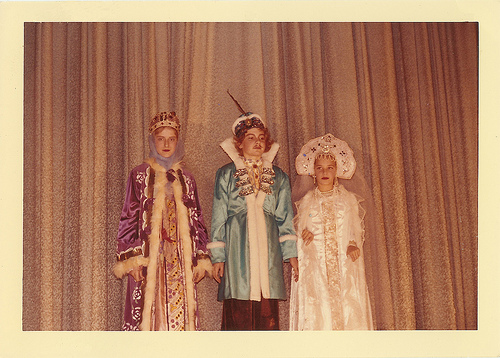Help requested – I am frantically writing a paper, and trying to remember where I came across a particular datum from a historian (which was, I think, cited in a more general text – perhaps James Scott’s _Seeing Like A State_; perhaps not) The datum was that peasants in mediaeval societies knew only a very limited number of other people, and that the average peasant in France (or perhaps the UK), would meet only eighty people or so over the course of his/her life. Anyone out there know where this claim comes from?
Maureen Corrigan reviewed sometime CT commenter George Scialabba’s new book What Are Intellectuals Good For? on Fresh Air last night. I’m only about half way through it myself, and am reading in the chaotic way that I tend to read collections (moving randomly between chapters at whim — though to be honest I read just about everything other than detective stories the same way), but I agree with her very positive review so far, especially enjoying the several invocations and discussions of Matthew Arnold whom Scialabba admires greatly. She says:
What Are Intellectuals Good For?, has been published in a beautiful paperback edition by the tiny Pressed Wafer. No one could expect it to be a stealth best-seller. But if you’re at all interested in 20th century thinkers like Noam Chomsky, Dwight Macdonald, William F. Buckley, Ellen Willis and Christopher Lasch to name a few, and in the larger question of whether the world would be poorer if they’d never written a word, then you’ll find Scialabba’s ruminations here invigorating. In fact, just reading Scialabba’s collection will make you feel smarter — even if it’s not clear if that kind of smarts has any direct social utility.
In fact I’d take issue with a little bit of that. It makes me feel stupider, not smarter, but I like books that do that. And I don’t, really, see why it shouldn’t become a stealth best seller. The in-progress CT book event will, no doubt, transform it at least into a stealth pretty-good-seller. (In fact, at time of posting it is #112 at amazon, no doubt somewhat helped by her review).
The first thing to be said is that Steve Teles has written a terrific book. Â The Rise of the Conservative Legal Movement tackles a topic of vital importance, is exhaustively researched and documented, and offers thoughtful and nuanced arguments that, for the most part, persuade. Â The book also achieves the rarely achievable: it bridges the divide between academia and, for lack of a better term, non-academia, offering a theoretically rich account that draws on historical institutionalism, organizational theory, and the sociology of knowledge, while also supplying much red meat for political columnists and combatants from across the ideological spectrum. Â I especially appreciated his desire to pry open the black box of organizational dynamics, looking not only at why the conservative legal movement has had many successes, but how it has done so, with attention thus to the crucial ingredients of money, leadership, luck, and learning that contributed to these successes. Â I also learned a great deal about both the conservative legal movement and American politics in the late 20th century. [click to continue…]
“Life must be lived forwards, but it can only be understood backwards.”1
“One of history’s uses is to remind us how unlikely things can be.2
I have considerably less to say about Steve Teles’ book than the other participants here. That should not be taken as criticism of the book – indeed, I think that The Rise of the Conservative Legal Movement is a terrific book, scholarship of the highest order, and I learned a great deal from it – about the rise of the “LLN” (Liberal Legal Network) in the 1960s and 70s (and in particular about the role that the Ford Foundation, under its then-President MacGeorge Bundy, played in developing that network, about which I knew very little prior to reading this book), about the early failures of the counter-revolutionary attempts (by groups such as the Mountain States Legal Foundation and the Center for Constitutional Litigation), about Henry Manne, and Richard Mellon Scaife, and the Olin Foundation, about the rise of “law and economics,” and about many other people, events, institutions, and ideas that played an important role – at least, Teles has persuaded me that they played an important role – in the rise of the conservative legal movement. [click to continue…]
From the Irish Times today …
IRELAND IS set for the sharpest fall in economic growth experienced by an industrialised country since the Great Depression, the Economic and Social Research Institute (ESRI) says in a report published today. The institute’s spring quarterly economic commentary estimates that gross national product will fall by 9.2 per cent this year. “Our forecasts suggest that Ireland’s economy will contract by around 14 per cent over the three years 2008 to 2010. By historic and international standards this is a truly dramatic development. “Prior to this the largest decline for an industrialised country since the 1930s had been in Finland, where real gross domestic product declined by 11 per cent between 1990 and 1993,” according to the ESRI.
Great posts today. Welcome to our guests. But here’s something light, in case you need a break. Found photo, found on Flickr:

Larger version here.